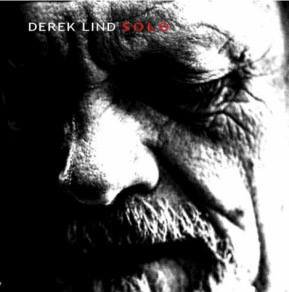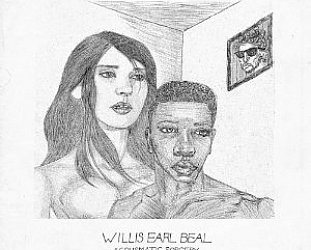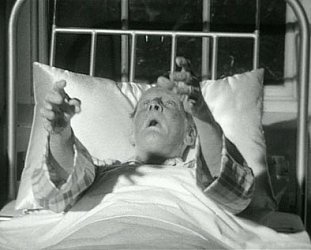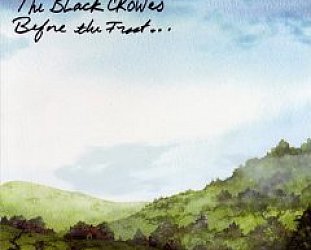Graham Reid | | 2 min read
Derek Lind: The Only Song I Got

For two decades from the mid Eighties, Derek Lind confirmed himself as among this country's finest singer-songwriters.
He had a Herald entertainment cover for his exceptional '90 album Slippery Ground, an album of resonant songs which stand up today for their lyrical depth, insight and allusive breadth.
There were further albums its equal, all of which were acclaimed by those who could hear the emotional resonances in his music.
Standing at the midpoint of the singer-songwriter tradition and classic American country-influenced writers like John Prine, Lind was a distinctive voice in New Zealand music. In his work he brought an intellectual Christian faith and through his travels for the Tear Fund had encounters denied other songwriters, and he brought those hard experiences to bear also.
Then he went quiet and when his wife Ra, the mother of their three adult children, died two years ago it seemed we might not hear from him again.
This handsomely presented double disc was supported by a Kickstarter appeal which raised the money in rapid time because friends and followers again just wanted to hear what he had to say.
Of course now he has even more emotional experiences to bring to bear.
This album -- the title about his emotional state rather than the sound, he works with an excellent small band -- isn't just his return but has a rare emotional weight and lyrical depth.
An artist as much as a musician, his lyrics tap into different, diverse and broad imagery, pick up resonant references (Matisse, Alice Cooper, Don McLean's Vincent, Prine, Dylan's Blood on the Tracks and more are seamlessly slipped in) and explore matters of faith, doubt, travel, grace and, of course, loss.
In the opener Do As You're Told he references Don McLean's Vincent ("the night sky is starry like that song about Van Gogh") then extends the imagery as part of a larger story: "A grey-haired woman in a house coat holds the hand of her groom, a faded sunflower in a jam jar clings to life inside the room".
It is about dying but also the acceptance: "He says, 'I have no fear of dying, forgive me my leaving you alone'. Through tears she thanks him for the years and says, 'Let go and go on home'."
That kind of compressed, clear and evocative lyricism only comes from the finest songwriters and thinkers.
Yes, there is a brooding quality here sometimes, meditations on death and so on, but there is also a joy in life, as one the outstanding Brunelleschi's Dome where he celebrates being in Florence.
He is above the world and delighting in the moment and the promise of travel: "Gonna see the Duchamps in the Pompidou, gonna see the Degas in the d'Orsay too, but right now I'm walking on Brunelleschi's dome . . ."
Throughout he weaves in politics as on The Valley of Dry Bones: "They're selling our country, babe with the backhanders and handshakes, the captains of industry are still running this town, parliamentarians in their pockets . . ."
Even on This House ("is not for sale, we're not going anywhere") he may allude to politics but equally it is about being embedded in life despite what gets thrown at you.
Many of these songs are ambiguous so the personal becomes universal: Is that Ra or his God he's speaking to on the haunting Will You Rescue Me?
And some lyrics (“I'm walking down a street named Tragedy on the outskirts of a town called Faith”) are emotionally naked.
Derek Lind's life and faith have been tested these past years and here he holds a prism up to his love and beliefs and sometimes finds emptiness and pain ("Every nerve is cut and cauterized, tears well up and burn my eyes, over you"), and sometimes hope, especially in the grandchildren ("In a world that seems cynical and mean . . . I'll keep you in my heart even when we are apart"). And sometimes solace in an affirmation of his faith (the beautiful closer Come to Me).
Solo is a powerful, intimate and moving cycle of songs as you are ever likely to hear.
It is also courageously cathartic and extraordinarily honest.





post a comment